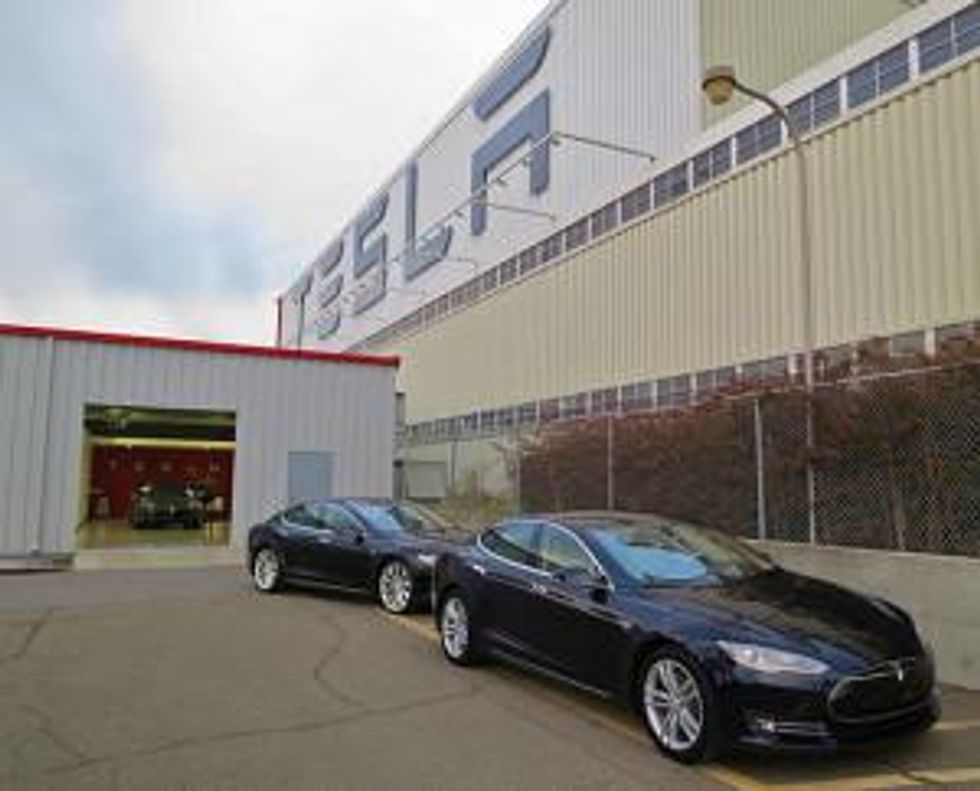Tesla Motors Eyes Super Lithium-ion Battery Factory
When you find yourself in the driver’s seat of cutting edge innovation, the motivation to take it one step further will undoubtedly call your name’
“This will be a giant facility. We are talking about something that is comparable to all of the lithium-ion battery production in the world — in one factory,” Musk said on on a November 6 earnings call with analysts.
It is no doubt that Tesla is ambitious when it comes to changing the automotive market. However, the road is not an easy one for the carmaker. Tesla faces an uphill battle in securing enough batteries to meet demand. The company’s primary lithium-ion battery supply, Japan’s Panasonic Corp, has supplied the carmaker with roughly 200 million lithium-ion cells over the last two year. But that isn’t enough for to meet Tesla’s future needs. In late October, Tesla and Panasonic hammered out a deal whereby the electronics company would supply the carmaker with 1.8 billion lithium-ion cells in the four years to 2017, Reuters reported.
Tesla’s Model 7′s biggest model uses roughly 7,000 lithium-ion cells. With nearly 2 billion slated to be at the company’s finger tips over the next few years, it looks like Tesla will have “enough juice to power more than 285,000 top-of-the-line sedans,” Business Insider wrote.
And with plans for its Model S, the upcoming Model X and future generations of electric vehicles Tesla can possibly single-handedly double current lithium-ion batter demand in the next few years.
“It doesn’t make sense for us to amplify demand if we aren’t able to deliver on that demand,” Musk was quoted saying earlier this year about battery supply.
Though Musk did not divulge many details about the possible plant, he did admit to its likely location being somewhere in North America. Musk also hinted that the plant would have “eco-friendly features, such as the use of solar power and a recycling program that makes use of old battery packs to make new battery packs.”
While as of yet the Musk has yet to determine the exact nature of his battery plant, speculation Tesla could be looking to build batteries from raw materials instead of outsourcing the work.
But before the company can really get ahead of itself, there are a few issues that it might need to address.
Lithium-ion batteries under fire
A third accident in five weeks involving a Tesla vehicle bursting int flames after metal debris cam into contact with the lithium-ion battery, has started speculation that perhaps US regulators should examine the the electric vehicle’s safety. Tesla is also looking into the incidents.
The latest accident occurred in Tennessee on November 6 when a Model S vehicle struck a metal object in the middle lane on Interstate 24. The vehicle sustained damage to its undercarriage, resulting in flames. In mid-October, a Tesla Model S being driven near Merida in Mexico struck a concrete barrier and was also engulfed in flames. Also in October, National Highway Traffic Safety Administration found that an October 1 crash in Washington state was not a result of defects or violations of US safety standards with the Tesla vehicle.
Tesla’s battery fires aren’t the first instance of lithium-ion batteries going up in smoke. According to Bloomberg, GM’s Chevrolet Volt and Fisker Automotive Inc.’s Karma, were also up in flames following accidents. Fisker recalled its vehicles, while GM asked vehicle owners to come in for service.
Karl Brauer, an industry analyst for Kelley Blue Book, offered a simple explanation to the problem: “We’ve known that gasoline is explosive, but after 100 years we’ve gotten used to it. It’s not that electric cars are any more dangerous. If you pierce the battery pack, damage wiring and release that high voltage, odds are you’re going to have a fire.”
Unfortunately, for a new company like Tesla that, at this point in its business, is reliant on its image, headlines like the ones of late can be damaging.
“At some point the cause of the fire, the safety of the drivers and even the attitude of the owners — all three apparently want another car — stops mattering because you’re left with recurring headlines featuring the words ‘Tesla’ and ‘fire,’” Brauer told Bloomberg.
Tesla earnings disappoint
Tesla’s Q3 earnings report, while not negative, didn’t provide investors with what they were hoping for. Analysts were expecting more than the 5,500 cars delivered in Q3. Business Week added that Tesla’s investors are still focused on the novelty of the company, looking at delivery figures instead of performance on the bottom line.
Tesla’s stock prices to a 17 percent beating this week, following the company’s earnings report and the news of the vehicle fires, Business Insider reported. Since September 30, the company has seen a decline in its share price of 27 percent. But that doesn’t change the fact that Tesla’s performance this year is still showing a four-fold increase.
Securities Disclosure: I, Vivien Diniz, hold no investment interest in any of the companies mentioned.





